| Umělec magazine 2003/3 >> QUESTIONS FOR ARTIST SOKOL BEQIRI | List of all editions. | ||||||||||||
|
|||||||||||||
QUESTIONS FOR ARTIST SOKOL BEQIRIUmělec magazine 2003/301.03.2003 Sezgin Boynik | focus | en cs |
|||||||||||||
|
"Mr. Beqiri, could you briefly explain the current political situation in Kosovo, its future and role of UNMIK?
The shortest way to describe the current political situation is unclear. Unclear, because of the undefined status of Kosovo. I feel that the UNMIK is a part of the former Yugoslav system, a bureaucratic, autocratic, ineffective and expensive administration. I see the future of Kosovo as an independent state, or as part of the European community. What do you think about the Balkan exhibitions of [Harald] Szeemann and [René] Block, where you also participated? With the two exhibitions you mention, I think that this is the end of showing Balkan exhibitions as a region. Do you think that there is some kind of movement happening in Balkan art? No, I don’t think that something like a movement exists. What is the future of the contemporary art scene in Kosovo? I think that we are definitely in an expansion. Can contemporary art work, exhibitions and happenings influence or change everyday life and the political situation ? Please, give me examples from local regions... As in my work, I’m too realistic to have such illusions. I don’t think that art has the power to change reality, even in the more democratic countries. There’s a network of artists who work together from the former Yugoslavian republics. Is there any chance to use this network against growing nationalism and chauvinism? There is no network. We are only participating in the same exhibitions. I don’t think that art can change anything. Can we use contemporary art as some kind of pedagogical tool in countries of transition? No. Are you happy in Kosovo? And what do you think, as an internationally known artist, about living and working in your homeland? Of course I’m happy. According to me, it’s very important to work in my homeland. What is perfect kitsch in Kosovo? I really don’t now where the borderline between art and kitsch is. Sometimes I think that so-called kitsch reflects reality in a better way. If I define perfect kitsch in Kosova, it would be the president. Do you have any formulation for the identity of being Albanian? The identity issue is a very complicated thing. Being Albanian is a fact; my grandfather called himself Albanian; my father called himself Albanian, I’m Albanian. It is a fact that doesn’t make me proud, but it doesn’t embarrass me either. "
01.03.2003
Recommended articles
|
|||||||||||||
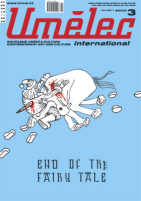
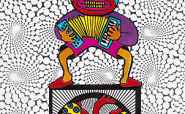
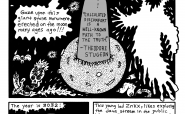
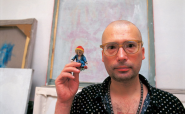
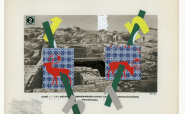
Comments
There are currently no comments.Add new comment